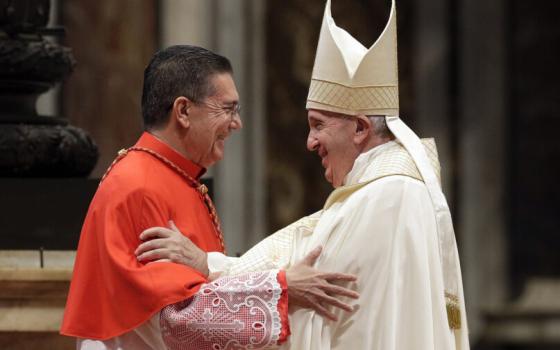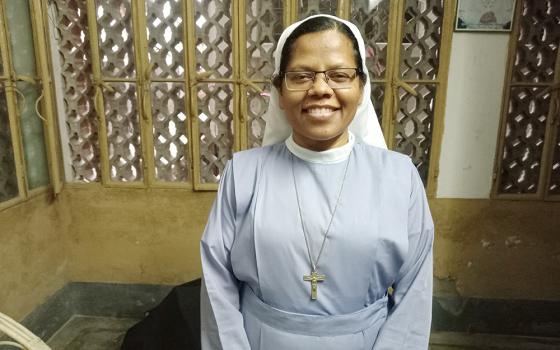An open letter to the U.S. bishops asks that at their Nov. 12-14 fall general meeting in Baltimore, they make it mandatory for bishops to become reporters of suspected sexual abuse.
"The nefarious actions of certain bishops surreptitiously transferring sexually abusive priests from parish to parish, and in some cases from diocese to diocese, without notifying civil authorities of the suspected abuse has been one of the most demoralizing elements of this crisis," said the letter, from the Villanova University Task Force on the Sexual Abuse Crisis in the Church.
"Children being abused by priests is tragic enough, but when our bishops, who are supposed to be our spiritual and moral leaders, not only abandon our children in their time of need but actually become complicit in that abuse by actively covering it up, we must ensure that effective and rigorous standards are instituted so that children will truly be safe," the letter said. "American bishops should never have the option of looking the other way and remaining silent again."
The open letter, posted on the university's website, was signed by 13 members of the task force, and about 140 Villanova faculty members and senior officials.
The letter's signers also want the bishops to launch and fund a long-term study on the clergy sex abuse crisis.
"While a great deal of information has been uncovered as a result of legal and civil proceedings, we are only beginning to understand what really happened. Quite clearly, the widespread nature of this crisis indicates systemic problems at every level in the church, and piecemeal attempts to deal with these problems will be ineffectual," the letter said.
"What is sorely needed is rigorous, sustained attention from a range of competent laity — including non-Catholics — who will make sense out of the full range of contributory factors to this crisis, and who will also identify necessary structural adjustments."
The letter also asked the bishops to facilitate conversations about the crisis from the national level to the parish level in "something akin to a truth and reconciliation commission."
The letter acknowledged this abuse crisis is not "a uniquely American phenomenon, as patterns of widespread sexual abuse and ecclesiastical malfeasance have emerged in a number of countries, including Chile, Australia, Ireland, New Zealand, Canada, Austria, Brazil, Spain, Germany, the Netherlands, and Switzerland.
Advertisement
The signers applauded the U.S. Conference of Catholic Bishops for the 2002 "Charter for the Protection of Children and Young People" and subsequent revisions.
They said they were grateful to the USCCB Administrative Committee for outlining in a September statement actions to address the abuse crisis, including approving the establishment of a third-party confidential reporting system for claims of any abuse by bishops.
Committee members also initiated the process of developing a code of conduct for bishops and looking at policies addressing restrictions on bishops who were removed or resigned because of allegations of abuse of minors or adults.
However, the letter continued, "the USCCB still has not required American bishops to become mandatory reporters of suspected sexual abuse."
It said, "The entire Catholic family is aghast at the abuse that has been perpetrated, and the only way to deal with the pain and bewilderment felt by Catholics worldwide is to allow victims of abuse to tell their stories, and to encourage Catholics to ask questions about why it happened, to show kindness and compassion and solidarity to those who have been abused, and to begin to fashion a safer and loving church that protects and nurtures its children."
"The Catholic Church in the U.S.A. is at a defining moment," the letter noted. The bishops' meeting, it said, "could inaugurate a new era in the American church, one characterized by honesty, accountability, generosity and love. Yet this will only happen if the USCCB embarks on an ambitious agenda to deal openly with this crisis in a sustained and coordinated manner."






